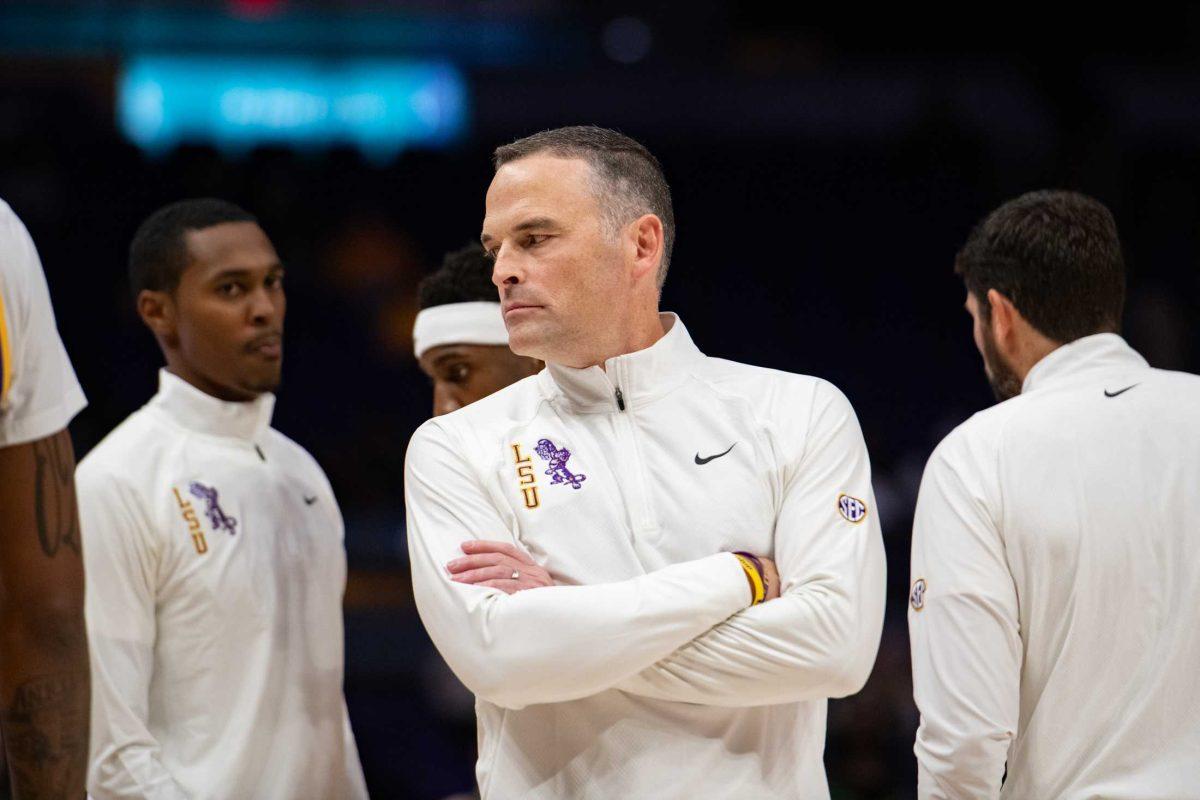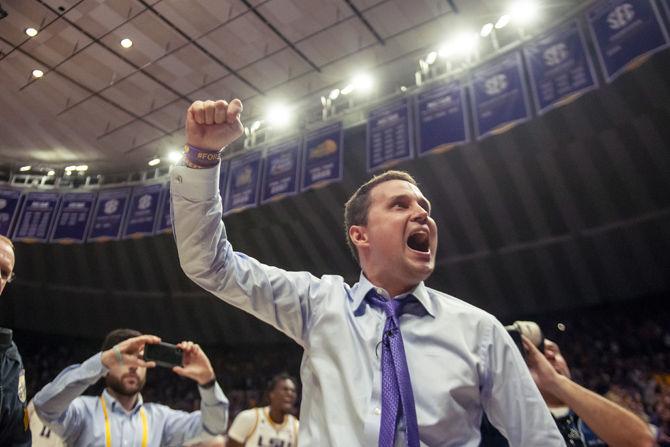LSU came up with its first conference win in its first chance, just like last year. On both occasions, the team beat strong opponents: top-10 Arkansas last year and Texas A&M this year.
However, last year’s Tigers followed up that opening win with 14 consecutive losses and finished with just two wins in the SEC.
LSU ensured that wouldn’t happen again on Tuesday in the Pete Maravich Center, prevailing 77-69 over Vanderbilt for its second conference win in its second opportunity.
“Last year has absolutely zero to do with this team,” head coach Matt McMahon said. “So that’s why the focus is just on consistent improvement. We want to keep establishing the habits that we need to get better as a team. Obviously thankful to be 2-0.”
On a relatively unspectacular night for the offense, it was LSU’s defense that earned it the win. LSU’s active hands on defense forced 15 Vanderbilt turnovers, which made a big difference as the game went on.
That’s been an important part of LSU’s defensive identity all season, as the Tigers are No. 28 in the country in turnovers forced per game.
Forcing turnovers and getting more offensive opportunities and shot attempts is a recipe for success, and LSU finished having shot three more attempts than Vanderbilt because of the turnover differential. Before a late Commodore push, the Tigers had attempted as many as 10 more shots than Vanderbilt.
LSU led by 15 late in the second half before Vanderbilt went on a 10-2 run to draw as close as seven. The Tiger defense slipped up on the perimeter to allow the run, losing sight of shooters or allowing players to blow by into the lane.
Aside from those mishaps, LSU has made strides recently in its perimeter defense, which has been a weakness at times this season due to over-aggressiveness and poor focus.
“I think early on we were kind of soft defensively, to be honest with you,” LSU guard Jordan Wright said. “We’re being a lot more physical and that has shown an impact. It’s harder to shoot and be in a rhythm when you’re being guarded the way we’re guarding right now. Getting into their legs, getting into their body, being tough over screens.”
Overall, LSU held Vanderbilt to 26% 3-point shooting. Though some of that can be attributed to the Commodores not being a great shooting team, LSU’s perimeter mistakes have certainly become less frequent.
LSU didn’t have overwhelming success on offense, as the Tigers shot just 42.2% from the field, less than Vanderbilt’s 44.3%.
However, the offense was once again much improved in the second half, with LSU shooting 48.3% in the second frame compared to 37.1% in the first. Again, what changed for LSU was an intentional focus on attacking the paint.
The leader of that charge was star guard Jalen Cook. In the first half, Cook made questionable decisions and forced difficult shots, not playing within the flow of the offense.
In the second half, Cook began to simplify his game and focus on getting to the rim. He finished with 28 points, two points shy of his career high and his most in an LSU jersey.
“In the first half he just didn’t have any rhythm,” McMahon said. “He deserves a lot of credit for [the turnaround]. He did a great job of just resetting and coming out and doing the things that we needed to do offensively to do a better job getting high-quality shots.”
LSU’s attack on the rim was also beneficial for the Tigers by giving them plenty of free throws. LSU entered the bonus early in the half and had 21 of its 23 attempts from the charity stripe in the second half.
In his first game against his former team who he was with for four years, Wright also made a statement. He finished with 15 points and also was aggressive in getting to the rim.
“I really, really, really wanted this win,” Wright said. “Definitely extra motivation. It was definitely special for me.”












